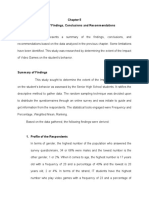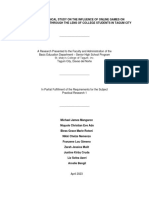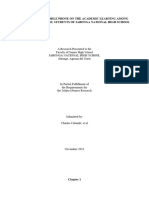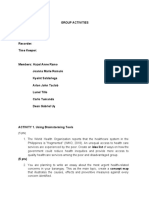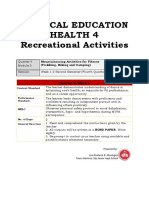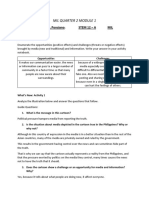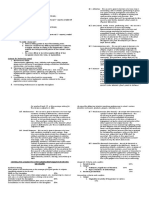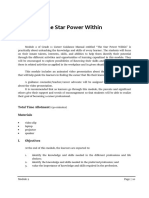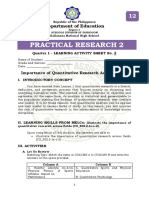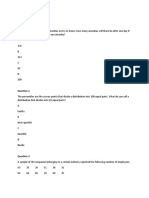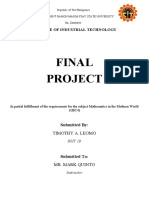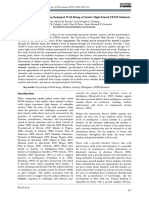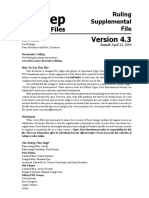0% found this document useful (0 votes)
342 views3 pagespr1 Group2
This study aims to describe the daily routines and learning styles of grade 11 students in Alangilan Senior High School who regularly play online games. Specifically, it will explore the skills students develop from gaming, how gaming affects their schedules and approach to learning, and identify results that can help other student-gamers. Previous research has found that excessive online gaming can negatively impact academic performance by interfering with students' ability to focus. However, strategic video games may improve cognitive skills and learning if they require problem-solving. This study will provide insights into balancing gaming with academics.
Uploaded by
BanyCopyright
© © All Rights Reserved
We take content rights seriously. If you suspect this is your content, claim it here.
Available Formats
Download as DOCX, PDF, TXT or read online on Scribd
0% found this document useful (0 votes)
342 views3 pagespr1 Group2
This study aims to describe the daily routines and learning styles of grade 11 students in Alangilan Senior High School who regularly play online games. Specifically, it will explore the skills students develop from gaming, how gaming affects their schedules and approach to learning, and identify results that can help other student-gamers. Previous research has found that excessive online gaming can negatively impact academic performance by interfering with students' ability to focus. However, strategic video games may improve cognitive skills and learning if they require problem-solving. This study will provide insights into balancing gaming with academics.
Uploaded by
BanyCopyright
© © All Rights Reserved
We take content rights seriously. If you suspect this is your content, claim it here.
Available Formats
Download as DOCX, PDF, TXT or read online on Scribd
/ 3










